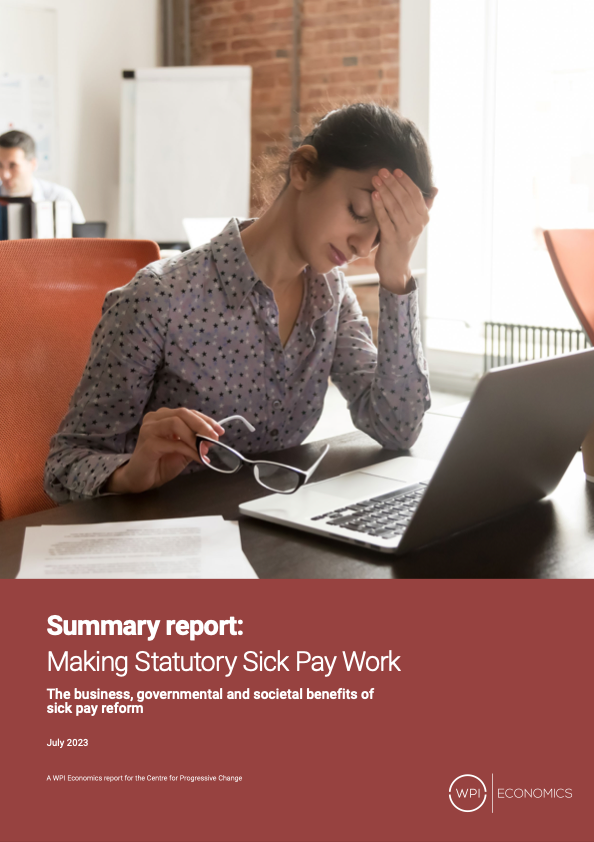
We have published new research with the Centre for Progressive Change, which makes the case for reform of Statutory Sick Pay (SSP). The research finds:
- Workers on SSP receive as little as £1.10 an hour in the first week and less than £3 an hour thereafter. More than half of workers (52%) on SSP are living in poverty.
- This leads many to have to choose between coming to work sick or struggling to make ends meet. International and UK evidence shows that this leads to worsening health, increased sickness absence in the long term and higher rates of presenteeism. This has a significant impact on individuals, businesses and the Exchequer.
- We assess the impacts of a package of reforms to introduce day one sick pay, remove the lower earnings threshold and increase the rate of SSP to the equivalent of the NLW.
- Overall, based on conservative assumptions, we find that the UK would benefit from a boost of up to £4.1 billion if every worker relying on Statutory Sick Pay (SSP) received a higher rate of employer sick pay from day one.
- We also recommend that the savings to Exchequer are, in part, recycled into a scheme to help some businesses manage the costs of reform. This should be targeted at those businesses / sectors who are likely to see the largest increase in costs.
The positive effects of sick pay reform would particularly benefit the increasing proportion of the UK workforce managing long-term conditions and ensure fewer workers fall out of the job market entirely. The evidence found that the direct costs of increasing sick pay were outweighed by the benefits, which include increased productivity, fewer periods of prolonged absence due to exacerbating existing conditions and better public health outcomes, because people are not spreading illness by coming into work sick.
